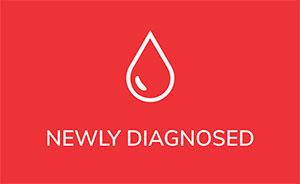Over the years, the treatment of chronic lymphocytic leukemia (CLL) and small lymphocytic lymphoma (SLL) has changed substantially. First, patients used to receive finite-duration chemoimmunotherapy. Then with the introduction of the Bruton tyrosine kinase (BTK) inhibitor ibrutinib, there was a shift towards continuous therapies, which are taken until disease progression. Now the field is moving towards finite-duration targeted therapy combinations to induce deep remissions.
With these advances, treatment outcomes have improved considerably, and more patients experience long-lasting progression-free survival after first-line therapy. However, progression-free survival and overall survival take much longer to measure because treatments have improved. Thus, MRD has become an increasingly important surrogate marker and potential tool to guide finite-duration therapy.
At the American Society of Hematology (ASH) 2021, Dr. Sameer Parikh, a hematologist and oncologist at the Mayo Clinic in Rochester, MN, interviewed our own Dr. Brian Koffman, Executive Vice President and Chief Medical Officer of the CLL Society. They discussed results from a survey of patients and caregivers.
Takeaways:
- The CLL Society invited patients and caregivers to participate in a web-based survey.
- 607 patients and 36 caregivers completed the survey.
- The average respondent was 64 years old.
- Most patients (64%) had been treated with targeted therapy.
- 89% of patients were somewhat or very familiar with the term MRD, and most (70%) were confident that they understood what MRD measures and its role in CLL.
- Even though self-rated understanding of the indications for MRD testing was relatively high, there is still clearly a knowledge gap because some (18%) wanted testing done when not clinically indicated, such as when there was persistent CLL by routine laboratory findings or at the time of diagnosis.
- About 1/3 of patients were unsure which treatments could lead to undetectable MRD.
- 90% of patients were familiar with the finite-duration use of some targeted therapies.
- If effectiveness and side effects were assumed similar, 77% preferred finite-duration therapy while 7% preferred continuous therapy.
- However, when choosing a therapy, treatment duration was less important than other factors, such as overall survival, having future therapeutic options, and avoiding chemotherapy.
Conclusions:
These results were presented at the American Society of Hematology (ASH) 2021 in front of thousands of hematologists from around the globe who learned from this research about their patient’s treatment journey. This survey was only made possible by the leadership of CLL Society and, most notably, the many participating patients and their caregivers. CLL Society is profoundly grateful and proud of those who took the time to complete the survey to help inform the healthcare providers of patients’ awareness, knowledge, and preferences related to treatment.
The survey found high patient awareness of MRD testing and finite-duration therapy, but there are still some knowledge gaps and opportunities for further education. As MRD and finite-duration therapy become more critical concepts in clinical practice, healthcare providers will need to consider their patient’s awareness, knowledge, and preferences and help educate them about their choices
Please enjoy this interview with Dr. Koffman from the ASH meeting, held in December 2021 in Atlanta, GA, and virtually.
You can read the actual abstract here: Awareness, Knowledge, and Preferences of United States (US) Patients with Chronic Lymphocytic Leukemia (CLL) and Their Caregivers Related to Finite Duration (FD) Therapy and Minimal (Measurable) Residual Disease (MRD)
Take care of yourself first.
Ann Liu, PhD

















